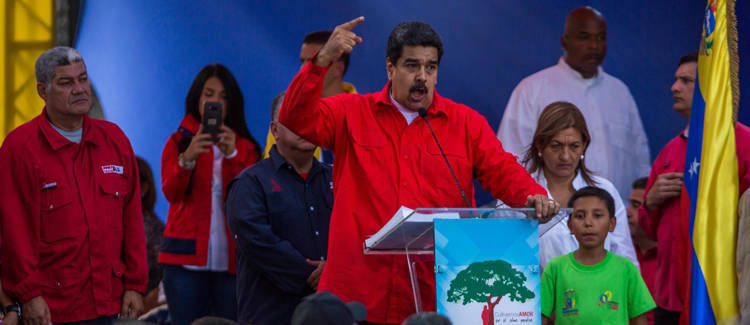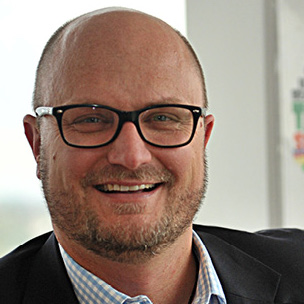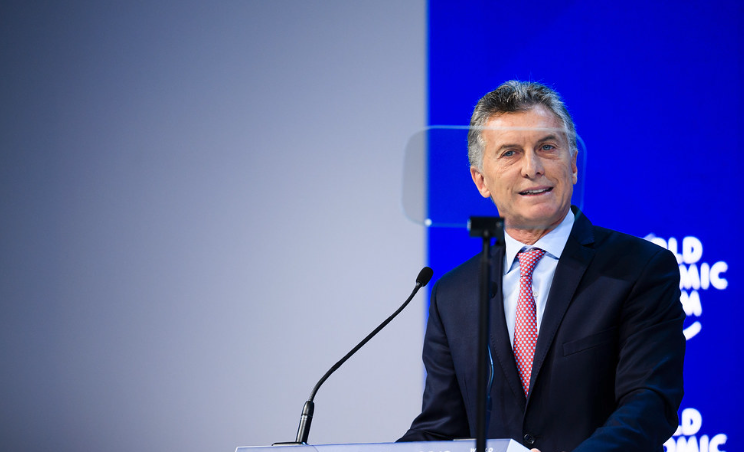News
Venezuela's Populist Armageddon
Venezuela is a perfect populist example of what African countries, and especially South Africa, must avoid at all costs.

Venezuela’s economy is in free-fall; its society imploding.
It’s the result of a combination of hyperinflation, violent crime, political repression, food shortages, narco-trafficking – and above all else, woeful government and ruinous policy. It is the end result of the Bolivarian Revolution, exposing in the process the true colours of a populist regime, less intent, as it’s turned out, on social redress than the pursuit of raw political power and control.
As a consequence Venezuela is set to become the first failed state in modern Latin American history.
This crisis should never have happened. Once the wealthiest country in Latin America, boasting a per capita income more than double the regional average up until the mid-1980s, Venezuela’s fantastic endowment of natural resources includes the world’s largest reserves of oil, and significant stores of gold, coltan, copper, bauxite, and nickel. It shows however that this all counts for naught when policy choices are bad.
Controversy surrounded Chavez’s Bolivarian Republic from the start in 1998. But he was popular, in part because he promised (and initially partly delivered) to the poor, long neglected by Caracas’ elite. His economic programmes were a textbook on statist folly: nationalisation in an age of privatisation.
While inefficiencies were plain to see, the high oil price papered over the obvious cracks. When he took over in 1998 the price of a barrel of oil was just $20. It peaked at $145 in 2008.
Of course, Chavez did not invent a rentier system of patronage in Venezuela; he took it to new heights – and then lows. His Bolivarian Revolution used state resources to buy support and a combination of the military and international relations to cement it. Its methods were feudal in buying political support through subsidies, state jobs and seizures, fed by an oil bonanza of more than a $1 trillion in income.
Then as the oil price went down, so did the economy. Between 2013 and 2017 Venezuela’s economy contracted by 38.7%. By the time Chavez shuffled off, there were widespread shortages of everything that Venezuela once used to make and grow, from bog-roll to bread, barley to beer.
The cracks in the Bolivarian plan were already beginning to show at the time of Chavez’s death from cancer in March 2013. His successor, Nicolas Maduro, once a bus driver, has lacked Chávez’s rough charm and guile, not to mention the institutional credibility of a former military officer. To stay in power he has had to increasingly ride roughshod over constitutional niceties.
Maduro has systematically eradicated, often by force, the remnants of democracy or economic governance. He has transformed rule from Chavez’s authoritarian democracy to a “hegemonic” state, crushing the opposition and commanding the loyalty of the masses through the distribution of a monthly box of basic goods known as the ‘CLAP’ (Conité Local Abastecimiento Popular), distributed to holders of an electronic party card, the Carnet de la Patria. In a self-fulfilling process, the CLAP is all that stands between many and hunger as a result of government’s dose of policies.
Political space has narrowed for opposition politicians. Two of the top three opposition leaders, Henrique Capriles, who received 49.12% of the vote in the April 2013 election, and Leopoldo López, a prominent opposition party organiser, are under house arrest. SUVs with darkened windows and soldiers of the SEBIN, the Bolivarian National Intelligence Service, stand guard outside their houses. Maduro referred to these two politicians and opposition leader María Corina Machado as “mercenaries” and “fascist parasites”, the government describing them as the trilogia de mal (trilogy of evil).
Machada gained government notoriety when she co-founded the election watchdog Súmate, which encouraged people to vote in a 2004 referendum to recall Chavez. The government brought charges against her for conspiring to “destroy the nation’s republican form of government”. Described by Chavistas as la candidata contrarrevolucionaria (the counter-revolutionary candidate), she ran for Congress in 2010 under the banner “Somos Mayoria” (We are the Majority).
“I hold two records as a member of Congress,” she laughs. “I am the one with the most number of votes ever, and the one, too, with the shortest number of days in Congress.”
She was expelled from the Assembly on account of her appearance at an Organisation of American States (OAS) summit.
Laughs aside, the work of an opposition politician is tough, she acknowledges.
“I have been called a romantic and a loser. But this is an ethical fight, to do with values.”
Regardless, she adds:
“It’s very tough to be an opposition leader. I cannot leave the country for the last four years. I cannot travel in commercial aeroplanes for the last 18 months at the threat of the operator losing their licence.”
A friend who gave her a ride in her plane had it impounded on landing. Her bus trips to campaign have been blocked and interfered with.
While she is not under imprisonment, the darkened windows of the cars outside remind of the permanent menace of the state. Speaking from her modest Frente movement headquarters in Caracas’ upmarket suburb Chacau, she continues:
“It’s hard to imagine a transition that will be tougher and more complex than the one we face. We have a humanitarian crisis, an internal security crisis, and an economic crisis, which is deteriorating so fast.”
The system has had so much power, she adds, through the rapid increase in the oil price from the time Chavez came into power.
“It unimaginable how much money they used, and how they were free to give this away. Their capability was strengthened through Cuban and Russian involvement, in intelligence, creating a state of terror in which people were and are being watched in every sector, where there is a mafia placed in universities, the armed forces, political parties, the church and in schools, the media, everywhere. This helps to explain certain people’s behaviour.”
The future is, however, not only down to what the government does, or does not do, but how the opposition responds. Machado agrees that the opposition needs a narrative.
“We shouldn’t be guilty. We should be audacious. We should be emotional in terms of connecting with the self-esteem of Venezuela, which has been so damaged. It has to offer a dramatic change from that we have. This is a huge challenge for the opposition’s message, which has to compete with the populism of Chavez and Maduro. It should not undervalue what the working class of Venezuela is expecting, and what they demand, and the opportunities that they seek. Until now,” she observes, “unfortunately the mainstream message of the opposition has been to try and emulate Chavez. Instead we need to develop a message on entrepreneurship, private property, investment, globalisation and free markets.”
And she is clear about her sympathy with the plight of ordinary Venezuelans, and the need for the opposition to develop its message and plans to address their plight.
“We need to fight against the origins of this drama, which links with the solution.”
With the strain apparent in her voice, she is aware also of what the regime’s response will be too.
“It is clear that they won’t accept an electoral exit. They won’t let go. They know the crimes they have committed. This is the psychology of criminals whose dynamic is to gain time, even a fraction, all the time.”
Her experience is widespread among the opposition. As one young municipal councillor, Jesus Armas, reminds:
“After the 2017 demonstrations, the SEBIN arrived at my home. I escaped, but they went to my office, and robbed it of my computer without a police order. I went into hiding for two months. It is very difficult to be a politician in Venezuela, with consequences for yourself and your family. Even if you just publish on your Twitter account, you can end up in jail.”

In 2017 the National Constituent Assembly passed the “Hate Law”.
The opposition has also been undermined by the state changing the political party funding regime, ending public support – other than to itself of course. Their attempts to find alternative sources have been made impossible by government threats against the private sector.
Chavez’s overall plan was to recentralise the state, ensuring absolute loyalty in his socialist project. This included the creation of communes under party control within and overlapping existing municipal boundaries. The empowering party appointees with the distribution of goods undermined formal, decentralised government. These intentions were laid down early in his 10-point 2004 El nuevo mapa estratégico, and restated in Plan de la Patria laid out by the Chavistas for the period 2013-19.
A burgeoning civil service of political loyalists was created. For example, by 2018 fewer than five of the 90 heads of Venezuelan missions abroad are professional diplomats. The civil service has increased from 700,000 to more than 2.5 million over the last 20 years. And the ruling party has been certain to keep its key constituencies onside. The senior ranks among the military and Guardia Nacional, together numbering as many as 300,000 soldiers, has benefited disproportionately from access to foreign exchange and contracts. And the state petroleum company, PDVSA, inflated its staff from 40,000 to 150,000.
Crime is another measure of the country’s collapse. The Venezuelan Observatory of Violence calculates that 28,479 people were killed in 2016, translating into a murder rate of 91.8 per 100,000 inhabitants countrywide. In the capital Caracas, there are 140 homicides per 100,000 people. South Africa by comparison has a murder rate of “just” 34/100,000 people.
Rising crime has made Venezuela one of the most dangerous places in the world. There is a narco-dimension to this, too, with Venezuela becoming a preferred route for traffickers, reflecting the state’s alleged involvement in the trade along with its erstwhile Colombian political allies in the FARC movement, which has enjoyed bases on Venezuelan territory.
The humanitarian situation and shortages of food have sparked a regional migration crisis. In the last 20 years three million Venezuelans (10% of the population) have fled the country. What started as a trickle with Chavez winning power has turned to a flood.
While government studiously maintained an official exchange rate of 14 Bolivars to the US dollar, the black-market rate, which shops openly sell in, is Bs240,000: US$1. Top-ranked University professors earn $6 dollar per month; a police superintendent with 17 years of experience, the same. It requires an estimated 98 times the official minimum monthly wage of 700,000 Bolivars to survive.
Venezuela is either the cheapest or most expensive place in the world, depending on your access to foreign currency. At the unofficial rate it costs $0.02c to fill up a car’s tank of fuel. A bill for five at a family restaurant is either over US$500,000 or under $25,00, exchange rate depending. This helps to explain why so many have given up, perhaps as many as 20,000 daily, taking one of the six daily flights to Miami, and not returning, or the 15-hour bus ride from Caracas to the Andean city of Santa Cristobel to hop over the Colombian border.
Current estimates have six million Venezuelans living abroad by this June. Civil society is being hollowed out. And the economy continues to melt down, expected to plummet by a further 50% this year.
Times are impossibly tough for ordinary Venezuelans, but especially the poor. More than 80% are living in poverty. In a country that now produces barely one-tenth of its food consumption, there is widespread reliance on unaffordable imports. Supermarket shelves are pitifully bare.
It is little surprise that Venezuela has ranked top on Bloomberg’s Misery Economy Index for five straight years in a row.
While hyperinflation and debt defaults are not uncommon in Latin America, at the start of 2018 Venezuela was one of the few countries worldwide with a shrinking economy, and the only one with hyperinflation. It has the dubious honour of being the only petroleum exporter simultaneously to suffer hyperinflation while defaulting on its international debt.
Although government stopped providing official figures in 2016, monthly inflation topped 100% in February 2018. This will translate into an annual rate of inflation of more than 1,000,000%.
Once deemed a 21st century socialist paradise, Venezuela is today an ongoing social Armageddon based, not on a natural disaster, but a crisis of domestic politics and policy catastrophe. It is a perfect populist example of what African countries, and especially South Africa, must avoid at all costs.
This article was originally published in The Daily Maverick.



